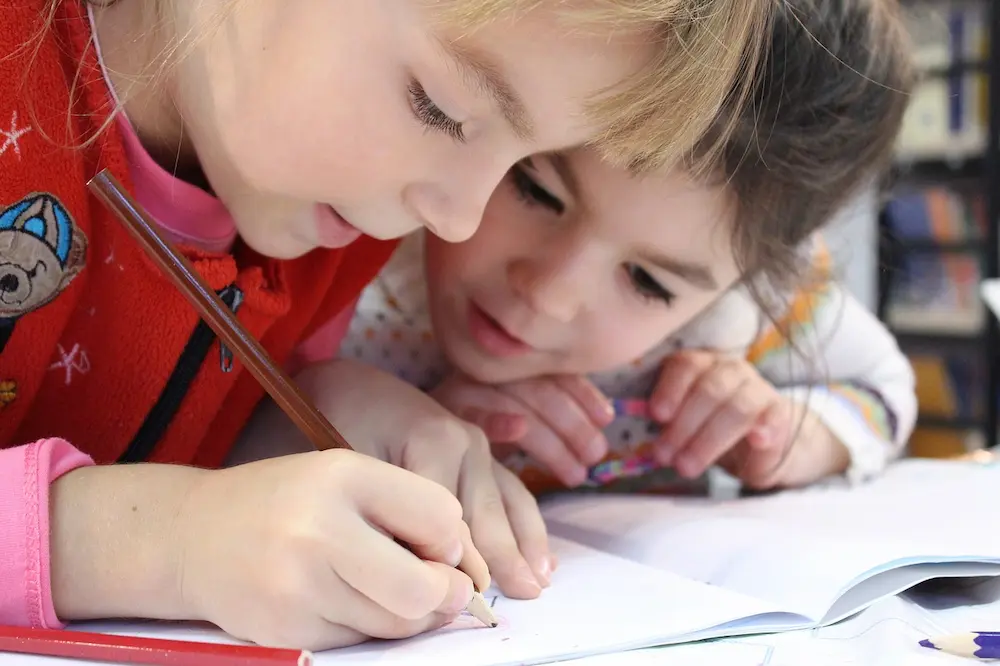As a child education expert, I am passionate about understanding the intricate process through which children acquire and develop thinking skills. Just like builders constructing a house, kids embark on a journey of learning, starting with a solid foundation and building upon it at different stages of their development. In this article, we will explore the fascinating world of children’s cognitive growth and uncover key insights into how they develop their thinking skills. So, let’s dive right in and discover the secrets behind this remarkable process.
The Foundation: Laying the Groundwork for Learning
Before we delve into the various stages of cognitive development, it’s crucial to emphasize the importance of a strong foundation. Much like the foundation of a house, a child’s early experiences and interactions with the world serve as the building blocks for their future learning endeavors. It is during these formative years that children begin to acquire fundamental cognitive abilities such as attention, memory, and perception.
During this foundational stage, exposure to diverse experiences and engaging activities can greatly enhance a child’s cognitive development. For instance, introducing coding for kids can be an excellent way to foster critical thinking, problem-solving, and logical reasoning skills. Coding empowers children to think sequentially, break down complex tasks into smaller steps, and anticipate and solve potential challenges along the way.
Stage 1: Concrete Thinking – Building the Walls
As children grow older, they enter the stage of concrete thinking. This phase is characterized by the ability to manipulate and understand concrete objects and concepts in their environment. Children in this stage engage in hands-on experiences and develop a more sophisticated understanding of cause and effect relationships.
To further nurture their thinking skills, it’s crucial to provide children with opportunities for exploration and experimentation. Encouraging them to engage in activities such as puzzles, building blocks, and scientific experiments can stimulate their analytical thinking, spatial reasoning, and problem-solving abilities. By actively engaging with their surroundings, children strengthen their cognitive muscles and lay the solid walls of their cognitive house.
Stage 2: Abstract Thinking – Crafting the Roof
As children progress in their cognitive development, they reach the stage of abstract thinking. In this phase, they begin to develop the ability to think symbolically, reason logically, and solve complex problems. Abstract thinking involves the capacity to understand and manipulate concepts that may not have a direct physical representation.
To nurture abstract thinking skills, it is crucial to engage children in activities that require higher-order thinking. Reading books, engaging in debates, solving riddles, and participating in creative projects can all contribute to the construction of the cognitive roof. These activities challenge children to think critically, analyze information, and express their thoughts and ideas effectively.
Moving from Room to Room: Transferable Thinking Skills
While each stage of cognitive development builds upon the previous one, it’s important to note that thinking skills are not isolated within specific domains. The cognitive house children construct consists of interconnected rooms, with thinking skills that can be transferred and applied across various contexts.
For example, the problem-solving skills acquired through coding for kids can be utilized in mathematics, science, and even social situations. Similarly, the ability to think critically and analyze information developed through reading can enhance a child’s performance in other subjects and real-world scenarios. By recognizing the transferability of thinking skills, we can encourage children to apply their knowledge and abilities to new challenges they encounter.
Embracing Lifelong Learning
In conclusion, understanding how kids develop thinking skills is like exploring the blueprint of a cognitive house. By providing a strong foundation, offering diverse learning opportunities, and fostering transferable thinking skills, we enable children to construct a robust and versatile cognitive framework.
As educators and parents, it is our responsibility to create an environment that encourages curiosity, exploration, and continuous learning. By nurturing their cognitive development and embracing their unique strengths and interests, we empower children to become lifelong learners, equipped with the essential thinking skills to navigate the complexities of the world.
So, let’s join hands and embark on this transformative journey, unlocking the limitless potential within each child. Together, we can build a future where the cognitive houses of children thrive, brick by brick, thought by thought.

